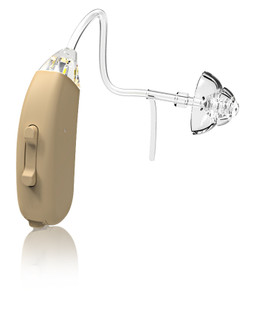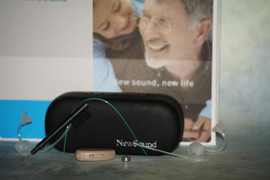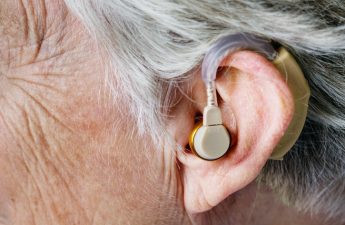The Importance of Follow-up Care for Hearing Aids
May 02, 2022
While the latest hearing aids in the market are getting very close to offering immediate hearing recovery, the technology still remains imperfect. Users need to make some adjustments from time to time. Thus, it is extremely important to go for follow-up sessions after you are initially given a hearing aid.
When it comes to hearing aids, follow-up care is important as every patient’s hearing is unique. The hearing aids need to be adjusted and modified to fit the distinct and on-going needs of the patient. Such routine visits to your doctor will help ensure that you keep continuing on the path of better hearing and a better quality of life.
The Importance of Follow-up Care with your Hearing Professional
1. Routine Cleaning
You should schedule an appointment for the proper cleaning of your hearing aid at least twice or thrice a year.
2. Changing Requirements
Your hearing loss can undergo change over time. It can either get better or may worsen with time. These changes often require adjustments of the programming in your hearing aids in order to help you continue to hear well. In some cases, such programming changes are also needed due to changes in preferences or lifestyles.
3. Repair Services
It is very important for you to visit your hearing professional regularly. Such a visit could include routine maintenance check-ups or assessing the changes in your hearing abilities. Sometimes, some accidents may occur that cause your hearing aids to work inadequately. But you don’t need to worry as these hearing aids often come with warranty plans and options for repair.
The problem can be due to other reasons as well, for example, the battery life of your rechargeable hearing aidstarts draining quickly. A follow-up visit can help you identify and rectify such problems But it is imperative that you need to handle your hearing aids with care and caution.
4. Aural Rehabilitation and Counselling
When using hearing aid technology for the first time, you may not be able to understand or hear the sounds and words properly in noisy environments. In such situations, you can go for follow-up care at your hearing professional’s in order to get help. Adjusting to your new digital hearing aid may take some time so you will be provided with several auditory therapy computer games and personal counseling to help you through the process.
What to expect during your follow-up visit
Communication with your audiologist is very crucial as it will let them know your problems and concerns. This will give them the opportunity to give you more information regarding your hearing aids and how they work.
You should make sure that you discuss every important detail with your audiologist, such as your overall experience with your hearing aids. Let them know about their performance in different situations and environments -what is working well and what requires some adjustment.
Few things you should ensure during your visit-
1. Hearing Aid Fit
Before making a visit, check the fit of your hearing aid. If there is any problem with the same, make sure you address it during your follow-up visit. The cause could be anything from a sore spot in your ear canal or the wrong size tubing which does not allow your hearing aid to stay in place. Once the problem is identified, your hearing care professional will quickly do the needful.
2. Re-test your Hearing
You need to get your hearing tested regularly in order to assess the intensity of your hearing condition. Your audiologist will check your hearing with and without the hearing aids and note the changes if any. This is important in order to program your hearing aid as per your requirement.
3. Discuss Maintenance and Warranties
Like most electronic devices, hearing aids also come with warranties and repair service options. These options often differ depending on the manufacturers, but they typically cover the following:
- Repairs- the time period for free repair services usually ranges from one to four years. The repair services cover component failure and breakage only.
- Loss and damage- this also range from one to four years and typically provides you with one free replacement, if the damage occurs during the warranty period.
- Extended warranty- warranties can also be extended from what the manufacturer initially offered for an additional fee. But most manufacturers don’t offer warranties beyond a four-year period.
These are some reasons why monitoring and treating your hearing loss is important and how follow-up care sessions with your audiologists are beneficial. So, if you haven’t already done so, book an appointment with your hearing professional without wasting any more time.










